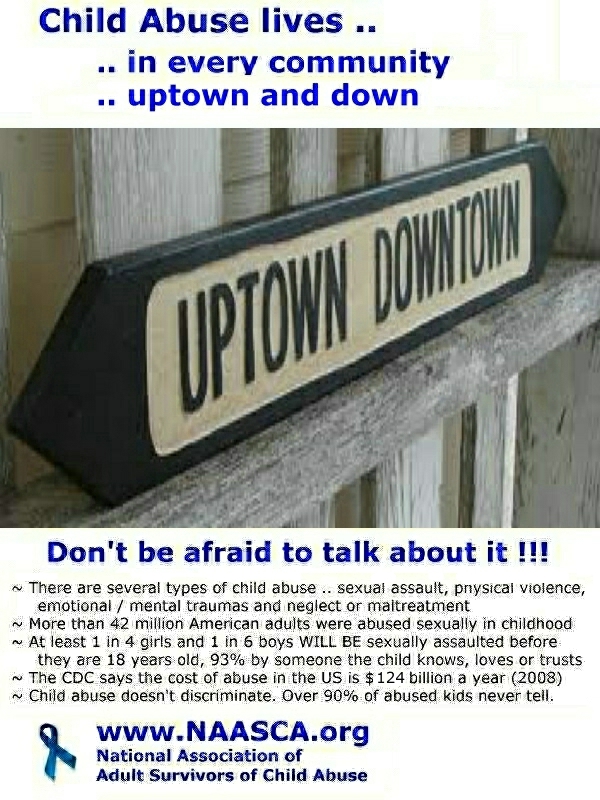| NAASCA Posters / Essays Celebrating April as National Child Abuse Awareness Month | |
| Child Abuse lives everywhere -- don't be afraid to talk about it | 18 of 30 .. |
 |
Child Abuse lives .. ...... in every community ...... uptown and down If you are not exactly sure what sexual abuse is, you're not alone. All sexual touching between an adult and a child is sexual abuse. Sexual touching between children can also be sexual abuse when there is a significant age difference (often defined as 3 or more years) between the children or if the children are very different developmentally or size-wise. Sexual abuse does not have to involve penetration, force, pain, or even touching. If an adult engages in any sexual behavior (looking, showing, or touching) with a child to meet the adult's sexual needs or interest, it is sexual abuse. Most often child sexual abuse is a gradual process and not a single event. By learning the early warning signs and how to effectively step in and speak up, sexual abuse can be stopped before a child is harmed. Adults must take the primary responsibility for preventing child sexual abuse by addressing any concerning or questionable behavior which may pose a risk to a child's safety. Some people who abuse children have adult sexual relationships and are not solely, or even mainly, sexually interested in children. More than a third of those who engage in sexual activity with children are under the age of 18 themselves. In many of these instances, the abusive child may not understand that his or her sexual actions toward another child are harmful. It's important to remember that many terms used to describe people who sexually abuse children, like "pedophile" or "sexual predators," are often misused according to their clinical or legal definition. And, media stereotypes of "child predators" and "monsters" may actually make it more difficult for us to recognize or acknowledge inappropriate behaviors in those people we know. Please see: Stop It Now! |
| ..<== Go to previous Poster / Essay |